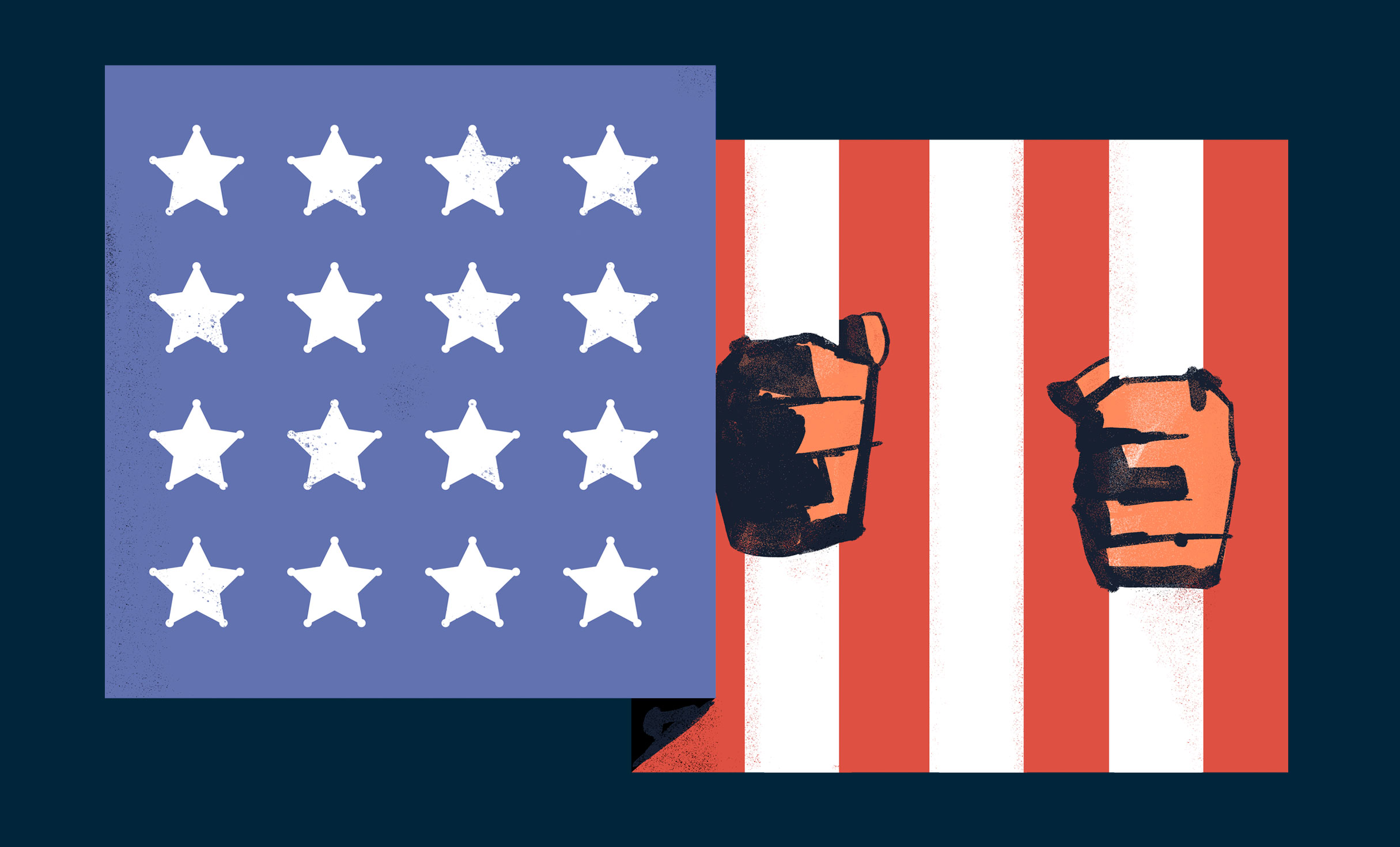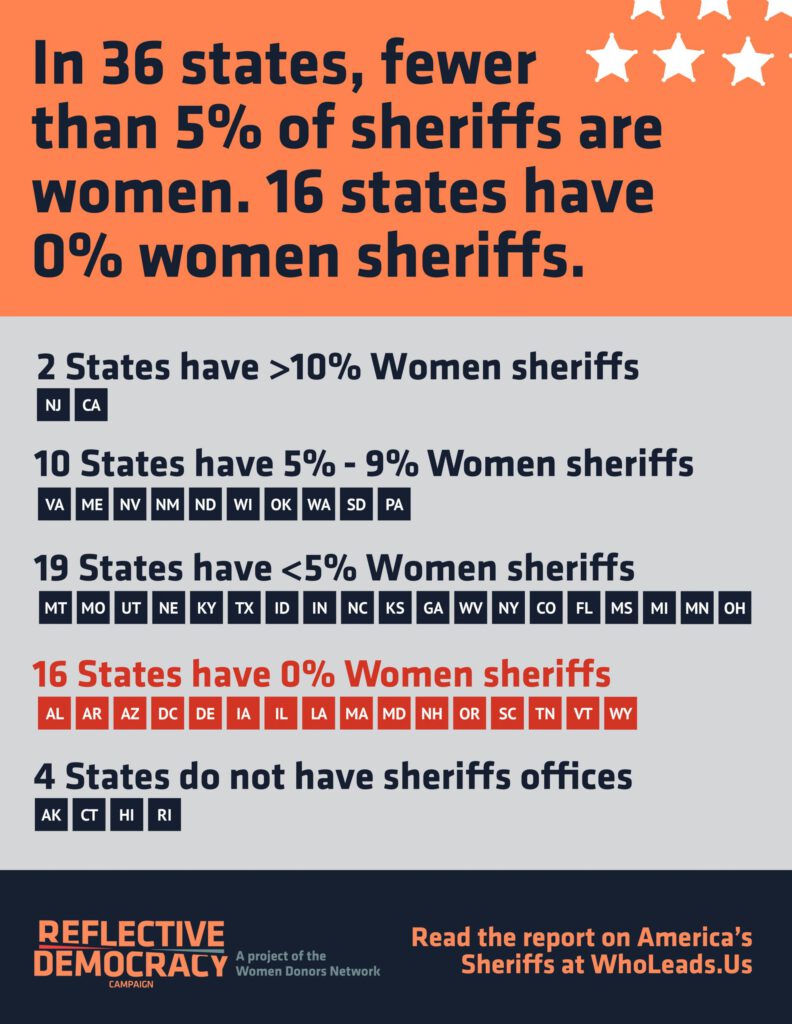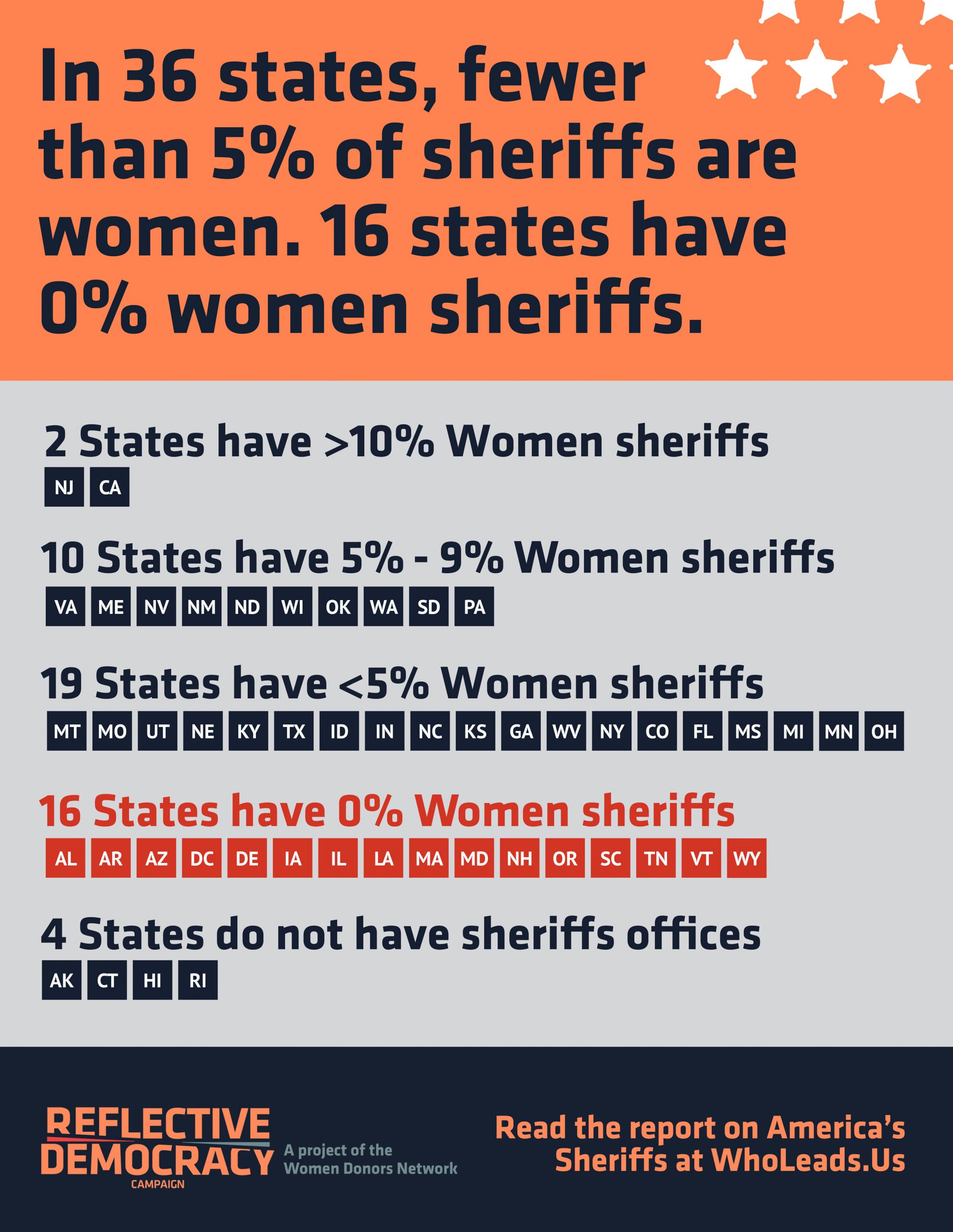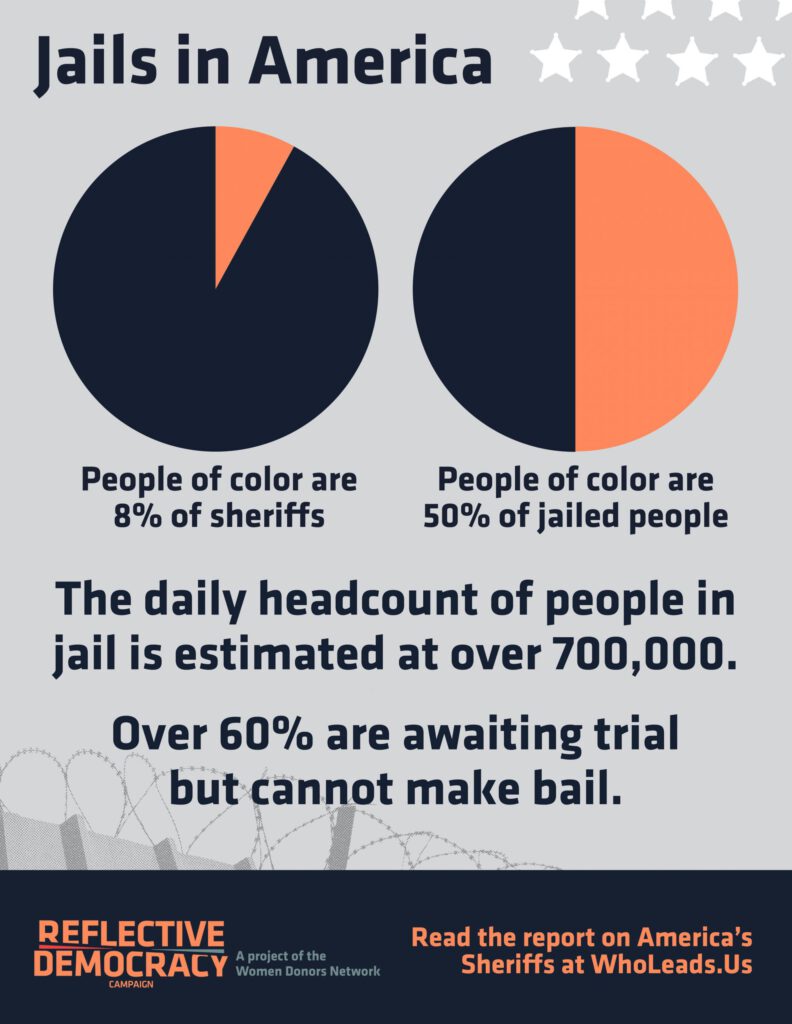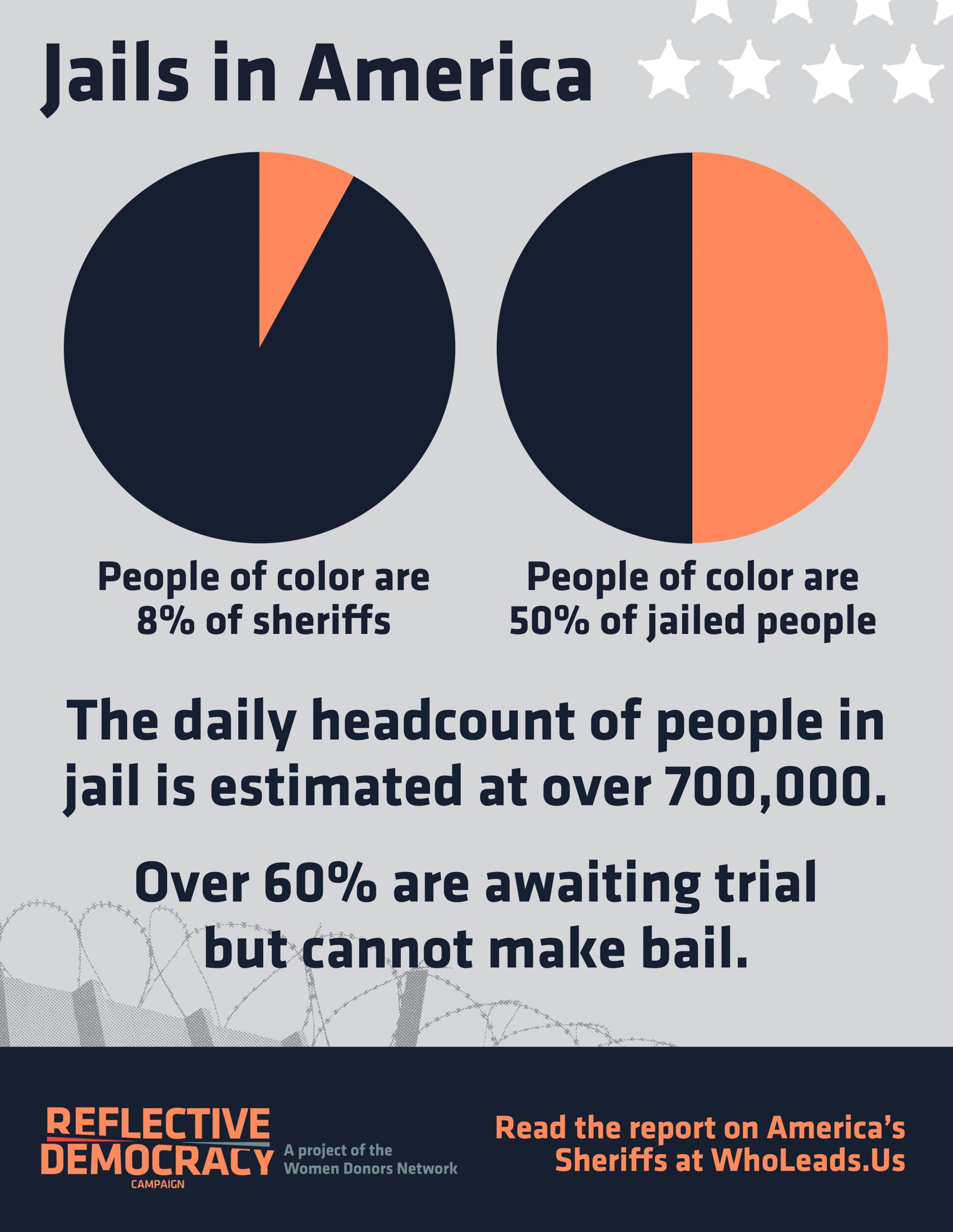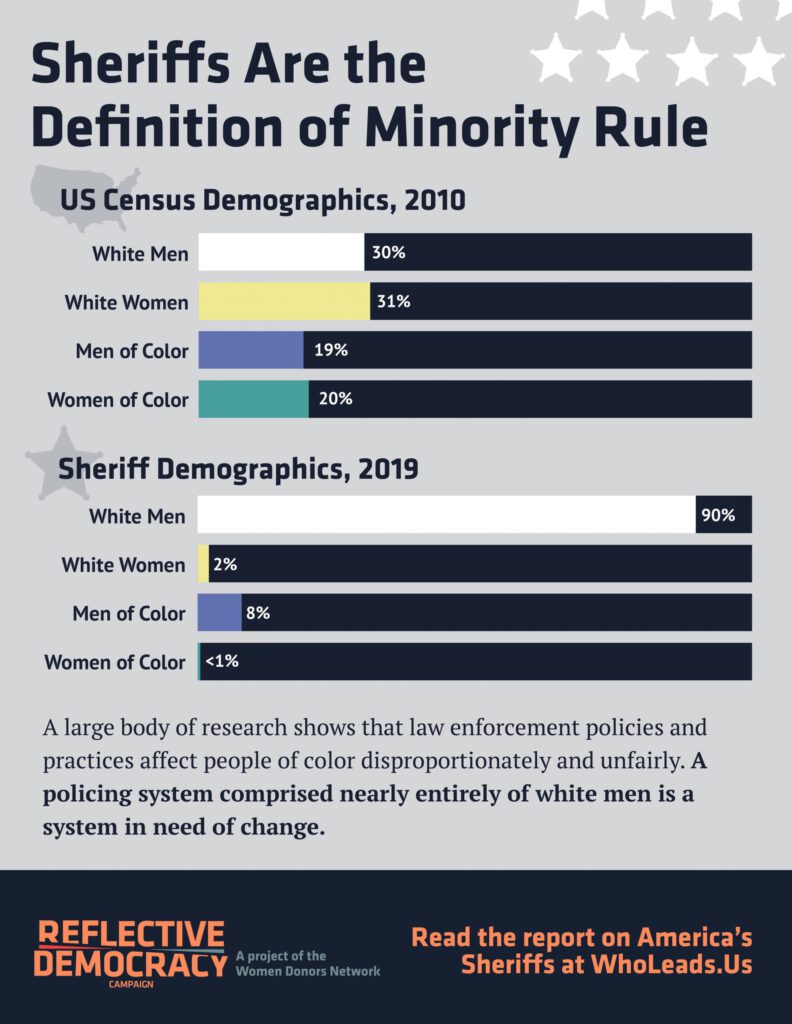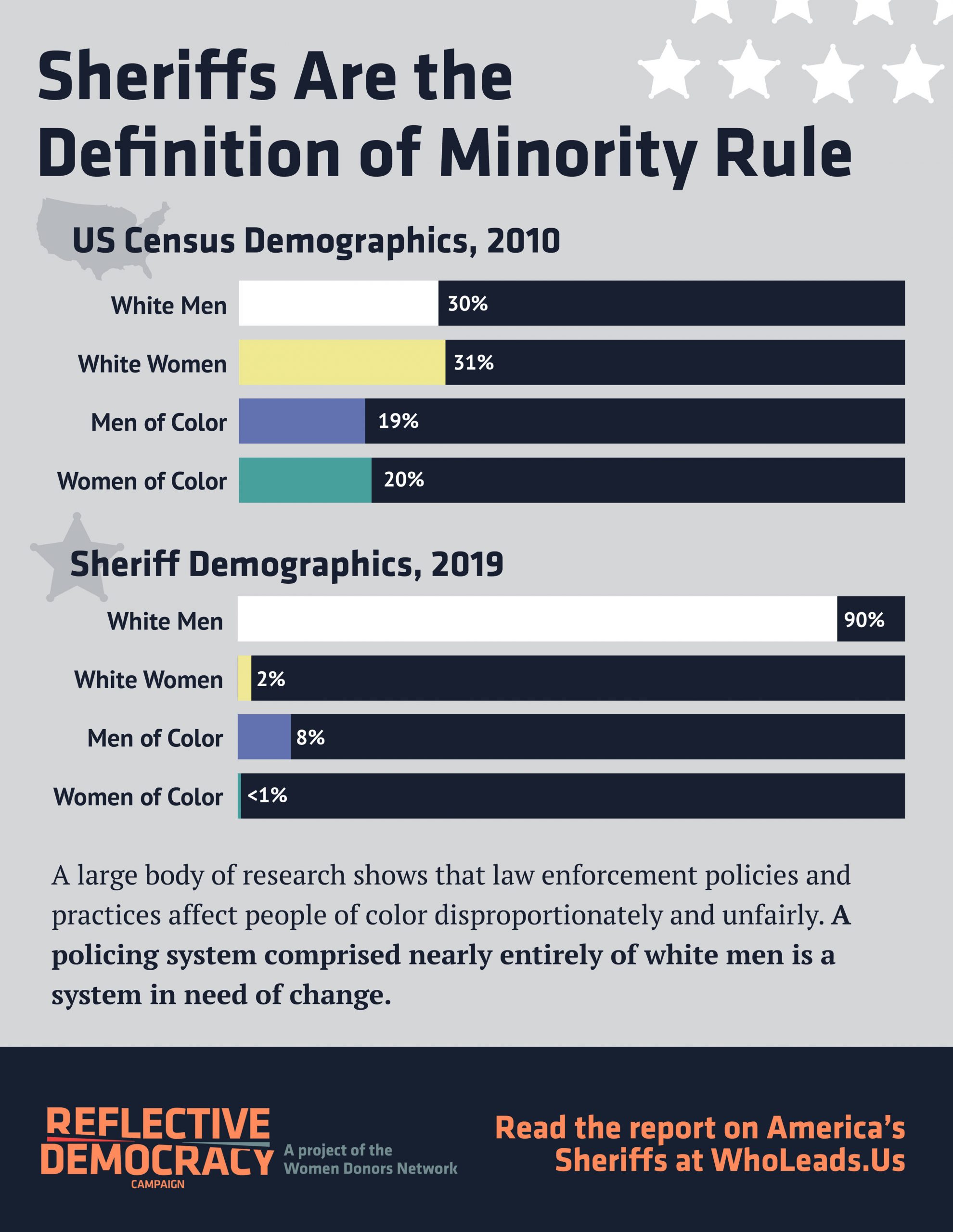In the context of the COVID pandemic and increased calls for accountability in the criminal system, the Reflective Democracy Campaign tapped our data to craft a demographic profile of American sheriffs, who manage county jails and a wide range of law enforcement activities, yet operate with less oversight than local police chiefs or commissioners.
The nation’s 3,000 county sheriffs are elected officials; they run for office in 46 states, often in unopposed elections. Sheriff demographics are gravely unbalanced:
- 92% are white
- 90% are white men
- Just 5% are African American
- And 2% of sheriffs are women
Overwhelmingly white and male, sheriffs intersect with their communities at sensitive and critical moments. Sheriffs commonly oversee residential evictions, domestic violence calls, traffic stops, polling place monitoring, and criminal investigations. Charged in many counties with enforcing public health regulations, at least 60 sheriffs from New Mexico to Wisconsin are openly refusing to enforce COVID- related restrictions.
Our report explores the role of America’s sheriffs, the impact of extreme white male over-representation, and how voters can take steps to make change:
- The Rap Sheet on America’s Sheriffs: Abuses by Sheriffs through history and today.
- Sheriffs are the Definition of Minority Rule: The extreme whiteness and maleness of America’s Sheriffs.
- Sheriffs Hold Power over Women & Families, But Nearly All Are Men: The impact of an office that is 98% male.
- During a Pandemic, A Night In Jail May Mean Death: The COVID pandemic and America’s jails.
- Voters – And Competitive Elections – Are Key To Change: How voters can play a central role in keeping Sheriffs accountable.
In the Media
The most glaring finding, perhaps, is that 92% of elected sheriffs are white while 90% are white men even though 50% of people in jails are people of color. Meanwhile, just 5% of sheriffs are African American and 2% are women.
“New Report: 90% of America’s Sheriffs Are White Men.” Black Enterprise
Sheriffs are a really unique position within both elected office and the criminal legal system. And in the course of doing our research, we concluded that this is a singularly troubling and problematic position of authority in the United States.
“Do Elected Sheriffs Have Outsized Power In The U.S.?” NPR

